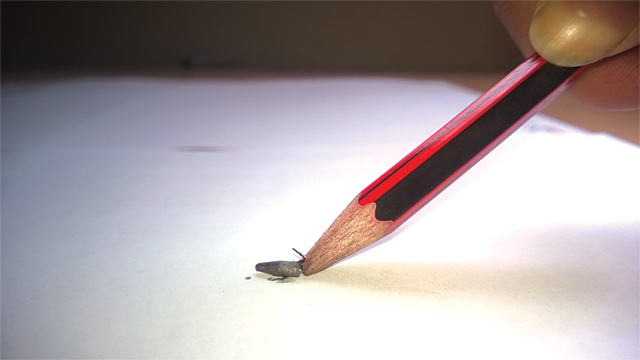
Pencils, refill ball-point pens, sheets of paper, note pads, a desktop, or some other location on your computer filled with Microsoft WORD documents. These are the paraphernalia of a writer, something all of us have. But their condition and how much we use them tells a very different story. Pencils that are as yet unsharpened, pens whose ink hasn’t flowed for months, empty sheets of paper, note pads that are nowhere as full as they ought to be, and WORD documents whose word count has been the same for a long time—these are the pile-ups of a procrastinator. It’s like that with me. The verdict: I am a lazy writer.
I deliberately save the WORD documents I am writing on my desktop (although I am told doing this slows down the computer) so that I am reminded of the vast bush that I need to cut down. It’s a mental thing for me. Seeing the cache of documents on my screen dwindle (as I complete them and move them elsewhere) gives me a satisfaction similar to that of a person who has finished trimming the overgrown plants in her garden. Since I also write longhand, even something as simple as sharpening pencils makes me happy and fuels me to write more.
I am (I think) not alone in procrastinating among writers. “Delay is natural to a writer,” E.B. White once said in an interview for The Paris Review. “He is like a surfer—he bides his time, waits for the perfect wave on which to ride in. Delay is instinctive with him. He waits for the surge (of emotion? of strength? of courage?) that will carry him along.” John Steinbeck would spend hours watching waves crash on the cliffs without writing a word. “I guess it is a good thing I became a writer,” he once confessed to an interviewer. “Perhaps I am too lazy for anything else.”
I once tried writing sitting on the benches overlooking the ghats in Pashupatinath. I ended up sitting there for over an hour, watching funeral pyres and devotees, and eavesdropping on lovers—almost everything except putting pen to paper. Then there is load-shedding, the scheduled power-cuts that plunge Kathmandu into darkness for hours. Writing in dim light is not my thing, so I end up postponing my writing to the next day.
In a recent post in his column on About.com’s Grammar & Composition page, Richard Nordquist mentions that Joyce Carol Oates, one of the most prolific American writers, with over 100 books to her name, describes herself as “lazy” and “staggeringly indolent.” He quotes an interview excerpt where Oates explains why she considers herself lazy.
“I am not conscious of working especially hard. Writing and teaching have always been, for me, so richly rewarding that I don’t think of them as work in the usual sense of the word.”
The columnist goes on to say that Oates’s attitude toward writing – writing as a reward in itself – is something every writer could adopt. The attitude that has probably helped Oates to be so prolific is perhaps what has made me so inefficient. A lot of the pieces I wanted to write (and still do) but that never really got done was because I never took them as work, as something that I need to do day in and day out, as something that was urgent.
Guilt, frustration, anger, and pessimism about one’s chances of succeeding as a writer are natural if you cannot put words on a sheet of paper or on a screen. But even staring at an empty sheet of paper is a phase of writing, of visualizing the potential of that paper. Like the Vietnamese Buddhist monk and poet Thich Nhat Hanh said, “If you are a poet, you will see clearly that there is a cloud floating in this sheet of paper.”
E.B. White’s and Joyce C. Oates’s quotes are from Nordquist’s columns at grammar.about.com, and Steinbeck’s is from an interview with The Paris Review (theparisreview.org). Kapil Bisht, this month’s essayist (and self-proclaimed procrastinator; aren’t we all, sometimes...?), can be contacted at papercloudtree@hotmail.com.










